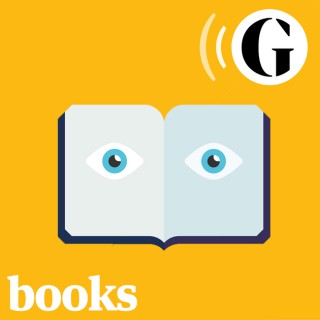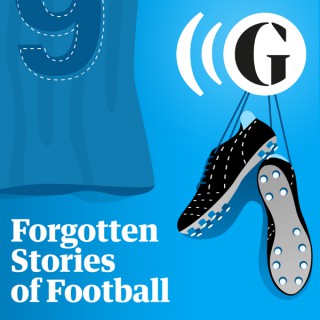Book It In
Follow Book It InWhat do books tell us about the world we live in? Join Lucy Clark, Paul Daley and Zoya Patel for conversations with top authors about the ideas that shape their work. Listen on Apple Podcasts, Google Podcasts or Spotify
- Apr 29, 2022 LATEST EPISODE
- infrequent NEW EPISODES
- 39m AVG DURATION
- 16 EPISODES
More podcasts from The Guardian
Latest episodes from Book It In

Paul Cleary documents the Yindjibarndi community's resistance and fight against Fortescue Mining Group. It's an ongoing David versus Goliath story that has taken decades, and even gone to the high court

Omar Musa on using humour to talk about racism, colonialism and inequality
Drawing on a printmaking technique he learned from punk-rock climate activists in Borneo, Malaysian Australian author and poet Omar Musa wrestles with race, family and isolation in Killernova, his new book of poetry and art. He talks to Zoya Patel and also performs poems from his new book

Hannah Kent's novel, Devotion, is a queer love story that is set in a pious, nineteenth century religious community. In resisting the narrative of shame that has dominated the retelling of this time in history, Kent is challenging the way authors represent the past

Craig Sherborne's novel The Grass Hotel tells the story of caring for a mother who is declining with dementia. He talks to Paul Daley about his own complex upbringing – one that was affectionate, but also filled with stilted and misunderstood expressions of care

Australiana is a novel set in a nameless town in rural Australia, where Yumna Kassab explores interconnected experiences of inequality. In doing so, she also makes us pause and reflect on how Australia is represented through literature

Chelsea Watego on sovereignty, survival and self-determination in the colony | Book It In podcast
Paul Daley speaks to Chelsea Watego about why she says ‘fuck hope' and why she wants to take her book, Another Day in the Colony, to Aboriginal readers in prisons

Based on more than four decades of lived experience in the public mental health system, Heidi Everett uses the lyricism of music and the drawings of a four-legged friend to describe her various mental states. In doing so, she expresses the difference between treatment and cure, recovery and healing, and existing and living

In a road trip prompted by an Australian man's imagination of America, Emily Bitto explores the literary trope of the masculine hero's quest – through her novel Wild Abandon

Paul Daley talks to Marion Frith about how she wrote a novel about life after loss and human resilience in the midst of trauma – by telling the story through an unlikely friendship between two fictional characters

Through personal tragedy and time spent telling the stories of victims, investigative crime journalist Debi Marshall says she's found that closure doesn't exist. So why do people read, and why do authors write, true crime?

Rawah Arja was determined to write a YA novel for – and about – teenage boys in Western Sydney. She tells Zoya Patel about how she created a story about religion, rivalries, romance, racism and redemption in The F Team

Paul Daley talks to Tony Birch about finding affection on the so-called margins of the inner city, the injustice of climate change and Blak humour. Birch also describes why he doesn't view his fiction as having a political message

Features editor Lucy Clark talks to Kathryn Heyman about the indignities that women endure throughout their lives and the craft of writing a memoir

In conversation with Zoya Patel, Alice Pung talks about the writing life and having a separate job – while also navigating the publishing industry as a woman and person of colour

Dear Son is a searing anthology of letters by First Nations fathers and sons. Two of Australia's best authors discuss the tenderness and strength of Indigenous masculinity, in conversation with author and journalist Paul Daley

What do books tell us about the world we live in? Join Guardian Australia features editor Lucy Clark, author and journalist Paul Daley, and writer and editor Zoya Patel for a weekly conversation with a top author about the ideas that shape their work

















